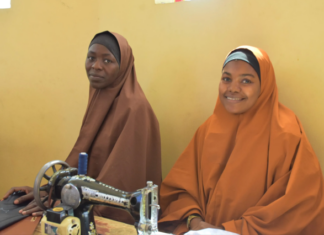INEC’s alert on threats to elections, calls for vigilance by relevant authorities and not mere dismissal of warning.
By Emeka Alex Duru
On Tuesday, June 21, 2022, the Senate raised alarm on the existence of terrorists’ enclaves in communities within three local government areas of Kwara and Niger States. The communities under threats included Kaiama, Karonzi-Yashikira in Baruten local government, and Wawa and Babanna areas in Niger State.
Two weeks later, precisely, on Tuesday, July 5, Kuje Medium Prisons in Abuja, the nation’s capital, came under heavy bombardments by suspected terrorists. 64 Boko Haram commanders and other hardened criminals inside the facility were released by the attackers.
Same Tuesday, gunmen ambushed and attacked the convoy of the advance team of President Muhammadu Buhari’s security guards and other officials, near Dutsinma, Katsina State. Two officers in the entourage were reportedly injured.
Hours earlier, the Police Area Commander of Dutsinma, Aminu Umar an Assistant Commissioner of Police (ACP), was killed in a gun battle with the terrorists in Zakka forest, Safana Local Government Area of same Katsina State
Nigerians considered the developments as ominous. But the President and his Information Minister, Lai Mohammed, chose to downplay the situation, telling the world that the monster of insecurity in Nigeria had been substantially degraded. “We are leaving the country much more secure than we met it,” Mohammed boasted before Reuters, a foreign news medium.
READ ALSO:
Shehu Sani reveals names of top five bandit commanders terrorising North West
Buhari on his own, told Bloomberg, another media giant, that insurgents were no longer in control of any part of the country, unlike what obtained in 2015 when Boko Haram held a large chunk of its territory. For effect, Buhari enthused that the leader of ISWAP had been eliminated by a Nigerian Airforce airstrike in March, adding that the potency of the group had been whittled substantially. Nigerians however knew that the president and his information aide were not saying the truth. If anything, the terrorists and other criminal elements in the country have been on the prowl, inflicting pains on the citizens.
Similar scenario is about playing out on the forthcoming general election, unless decisive actions are taken by the relevant agencies of the government. Last Monday, the Independent National Electoral Commission (INEC), drew attention to the growing wave of election-related insecurity across the country, expressing fears that, if not checked, the trend could lead to the cancellation or postponement of the general election. INEC particularly warned that developments could hinder declaration of elections results and precipitate constitutional crisis. It called for concerted efforts to arrest the situation.
The Chairman, Board of The Electoral Institute (TEI), INEC’s training arm, Prof. Abdullahi Abdu Zuru who made the observation at the validation of election security training resources in Abuja, pleaded that this must not be allowed to happen and shall not be allowed to happen. He charged security agents and all election officials to be conscious and alert to unusual activities in their environment and be fully equipped to deal with any challenge at all times.
That, ordinarily, should serve as food for thought for all. But the government would have none of it. Rather, it chose to dismiss the alert as a non-issue. According to the information minister, nothing has happened to alter the election timetable, hence the poll will not be postponed or cancelled. Mohammed, in fact, faulted the INEC National Commissioner who had raised a red flag on the polls. Also, the INEC National Chairman, Prof Mahmood Yakubu has assured that the Commission is not contemplating shifting or cancelling the polls due to insecurity.
Ordinarily, the optimism expressed by the minister and the assurance by the INEC chair, could serve as adequate guarantee of security to the electorate in going out to cast their votes. But then, Nigerians have been pushed to a situation where they can hardly go home, convinced that any pronouncement by the government can be relied on. Rather, there is a huge trust deficit between the people and their leaders. Over the years, the people have been fed with lies by the government that they hardly believe any declaration by its officials.
The facts on ground even suggest that the minister conveniently chose to ride on the path of propaganda instead of addressing the matter at hand. Last month, INEC released data detailing 50 attacks on its offices and facilities across 15 states, including: Imo (11), Osun (7), Enugu (5), Akwa Ibom (5), Ebonyi (4), Cross River (4), and Abia (4), Anambra (2), Taraba (2), Kaduna (1), Borno (1), Bayelsa (1), Ondo (1), Lagos (1), and Ogun (1) and others.
In some instances, staff of the commission have been killed and facilities set ablaze. In the South East, Imo has been the hardest hit with Ihitte-Uboma, Orlu and Owerri offices of the commission violated, severally. INEC offices have also been torched in Osun.
Before now, INEC had made startling disclosure that 242 polling units with 142,261 registered voters in 10 Councils of Katsina State were under serious security threat and may be affected in the elections.
At a point, reports by THISDAY Newspapers of October 2, 2022, credited to Concerned civil society actors conversant with the undertaking of the Inter-agency Consultative Committee on Electoral Security (ICCES), indicated that INEC may be under constraint to conduct 2023 elections in over 686 communities due to the activities of armed non-state actors across the federation.
Findings by the group revealed that the affected communities and wards cut across 90 local government areas (LGAs) and 18 states of the country. Of the 686 affected communities, 618 were identified in the north alone, while the South had 68. 336 affected communities were identified in the North-west out of which 200 were in Zamfara State alone. In the North-east, 168 communities were identified, with Borno having about 79 wards where elections may not hold. 114 wards, mainly located in Kwara, Nasarawa, Niger and Plateau, are affected, in the North-central.
55 communities were identified as trouble spots in Abia, Anambra and Imo States. In the South-west, the findings claimed that at least 10 communities are identified in Ondo State, especially in Owo LGA, Ose LGA and their environs.
These are not statistics that can be dismissed with the wave of the hand. What the INEC Commissioner has done in raising the alarm on the threats to the polls, is to draw the attention of the relevant agencies to brace up for the challenges ahead. The alert is timely and commendable. Though the information minister and INEC Chair have assured that there is no cause for alarm, there is need for Nigerians to be more careful so as to avoid being taken unawares.
We have had occasions where the security agencies had assured the President of their readiness to rise to the menace of terrorists in the country. Lai Mohammed had even at a time boasted that the insurgents had been technically degraded. Bu not much has been achieved in these regards. Let the casual dismissal of the INEC alert on the polls not follow the same path.













